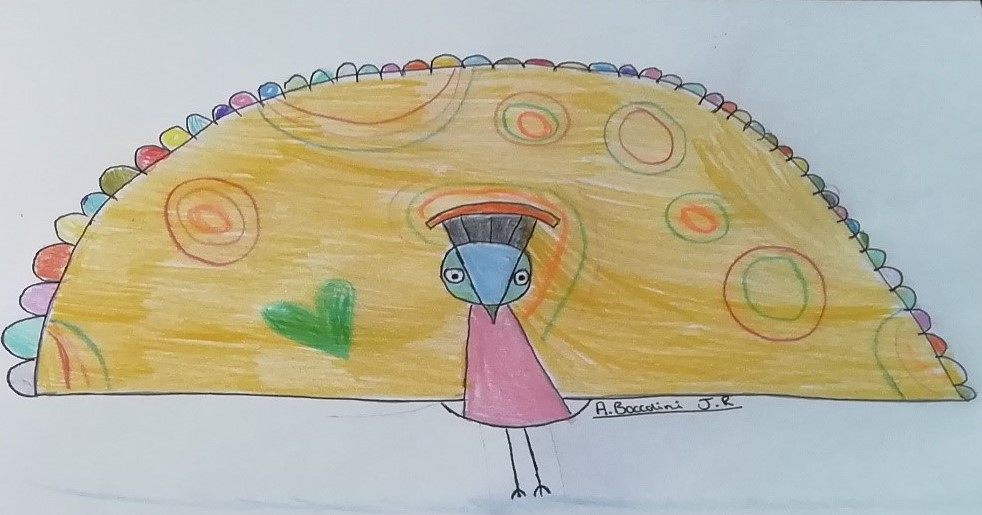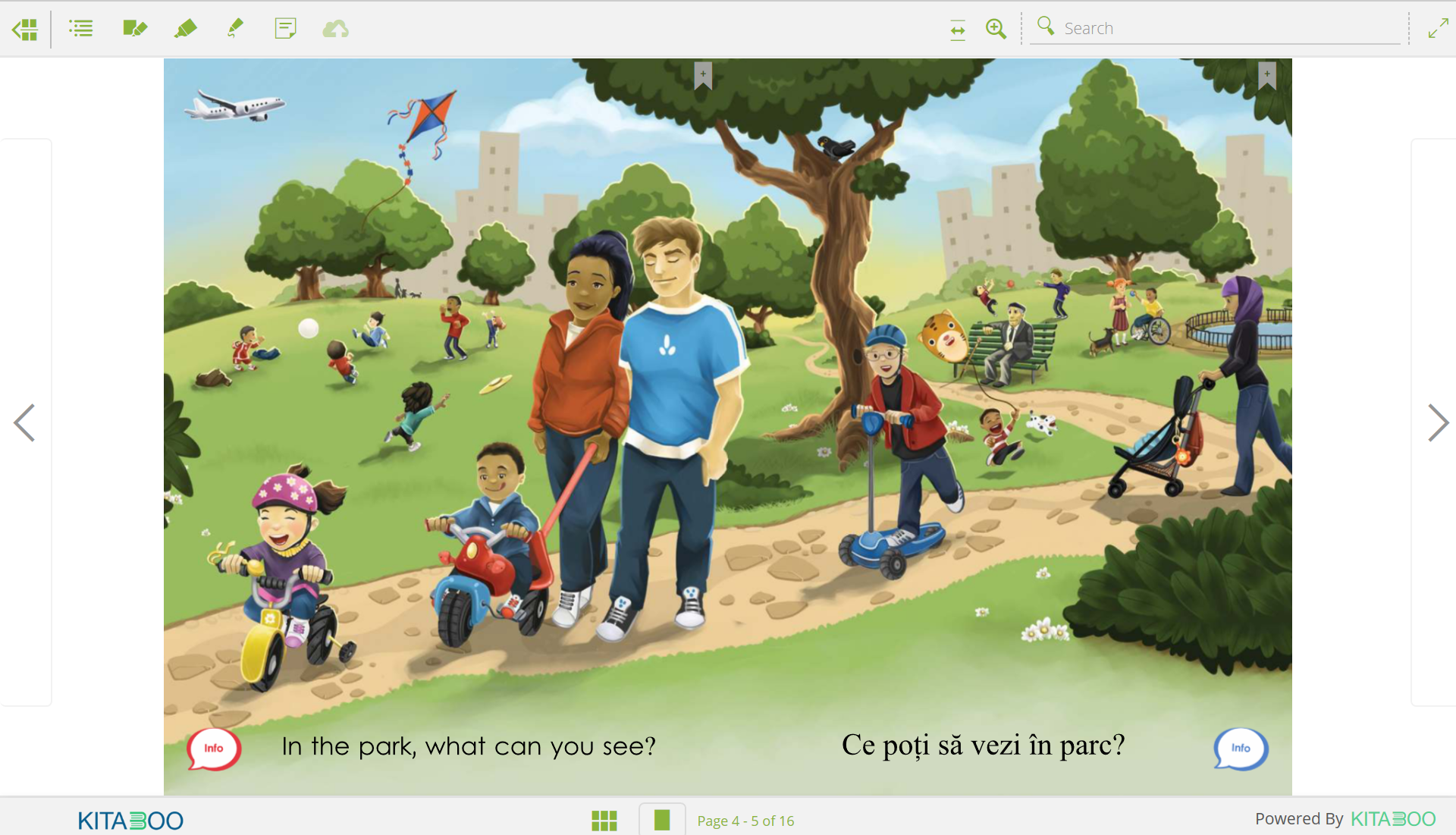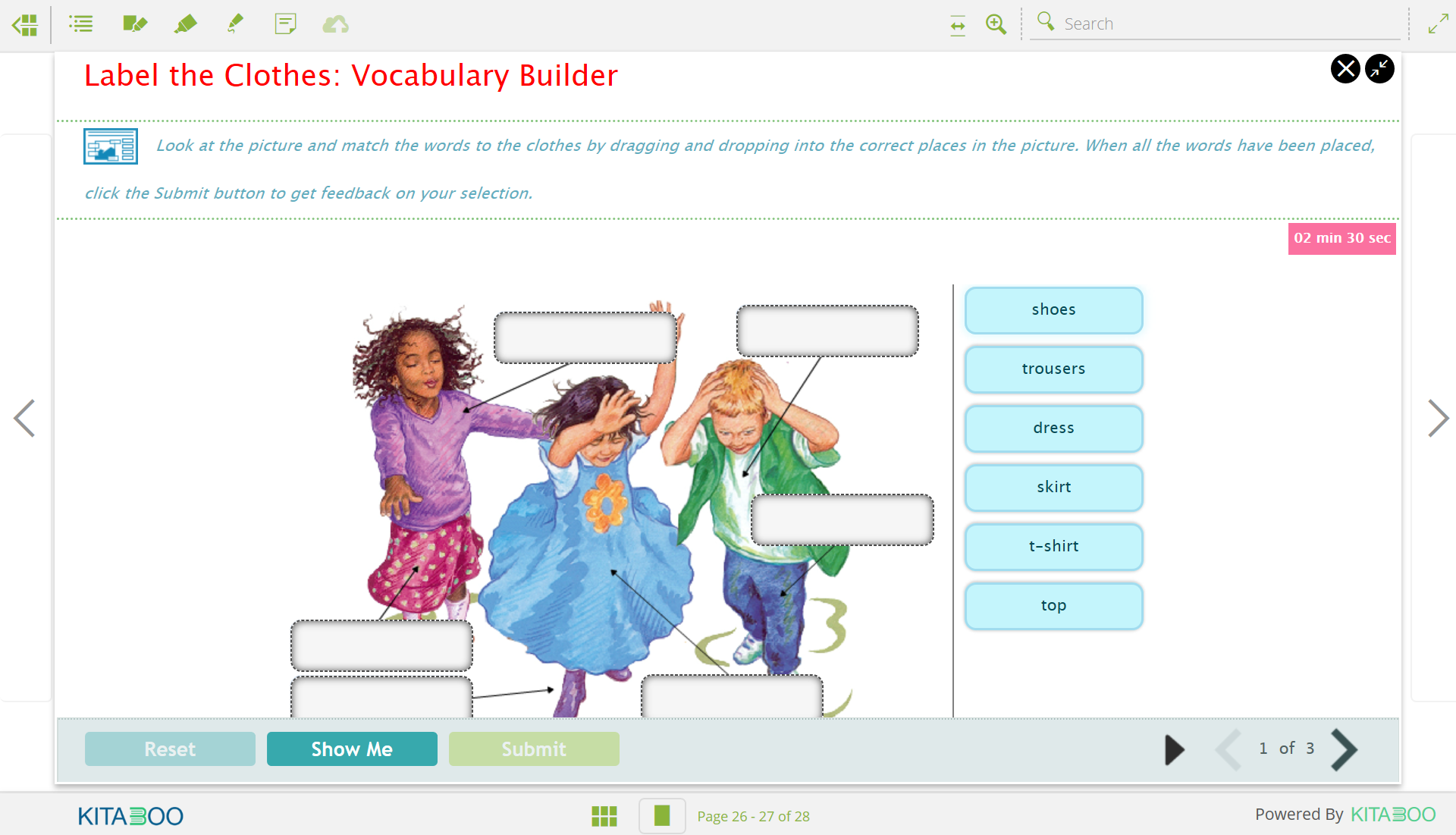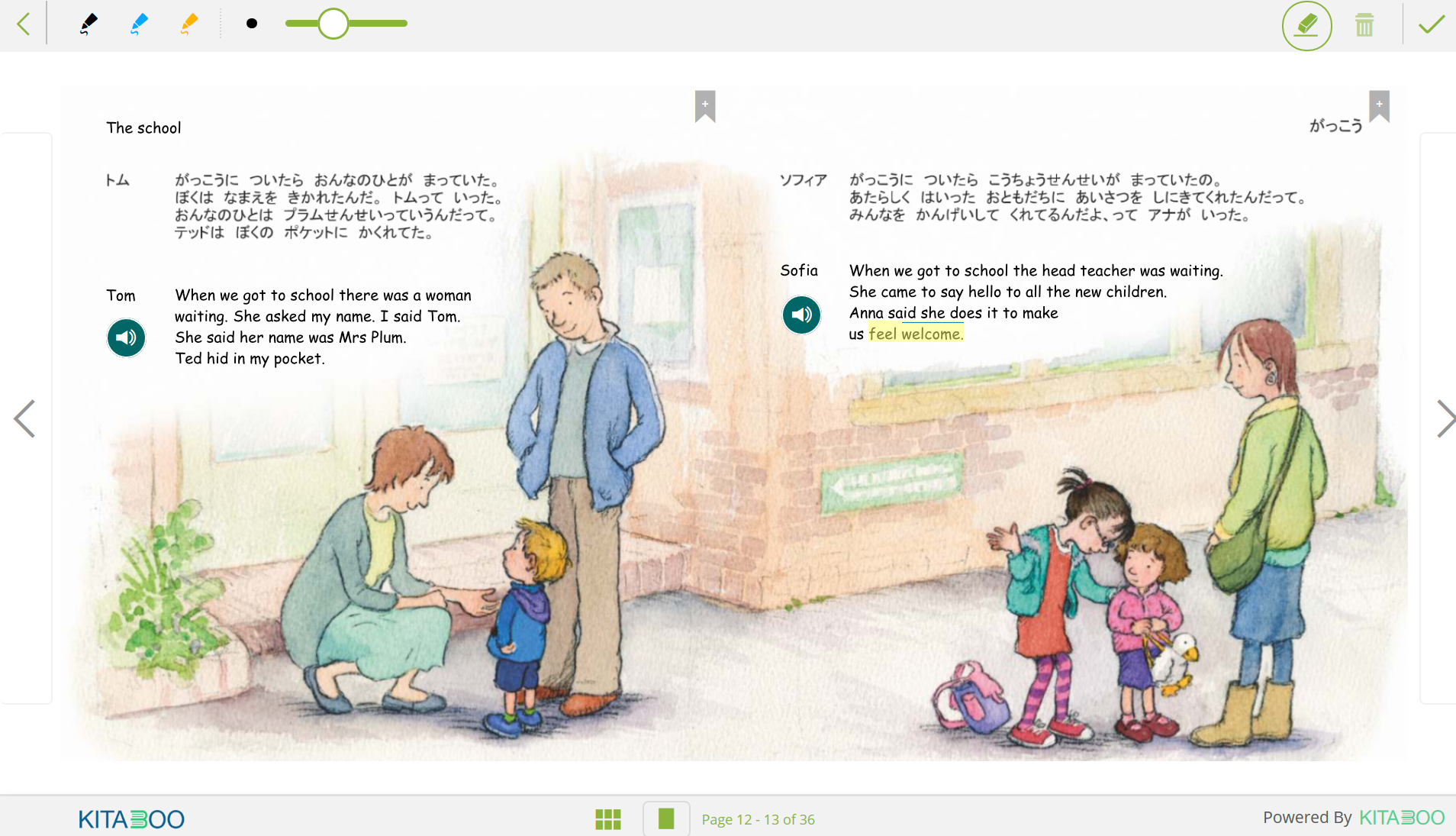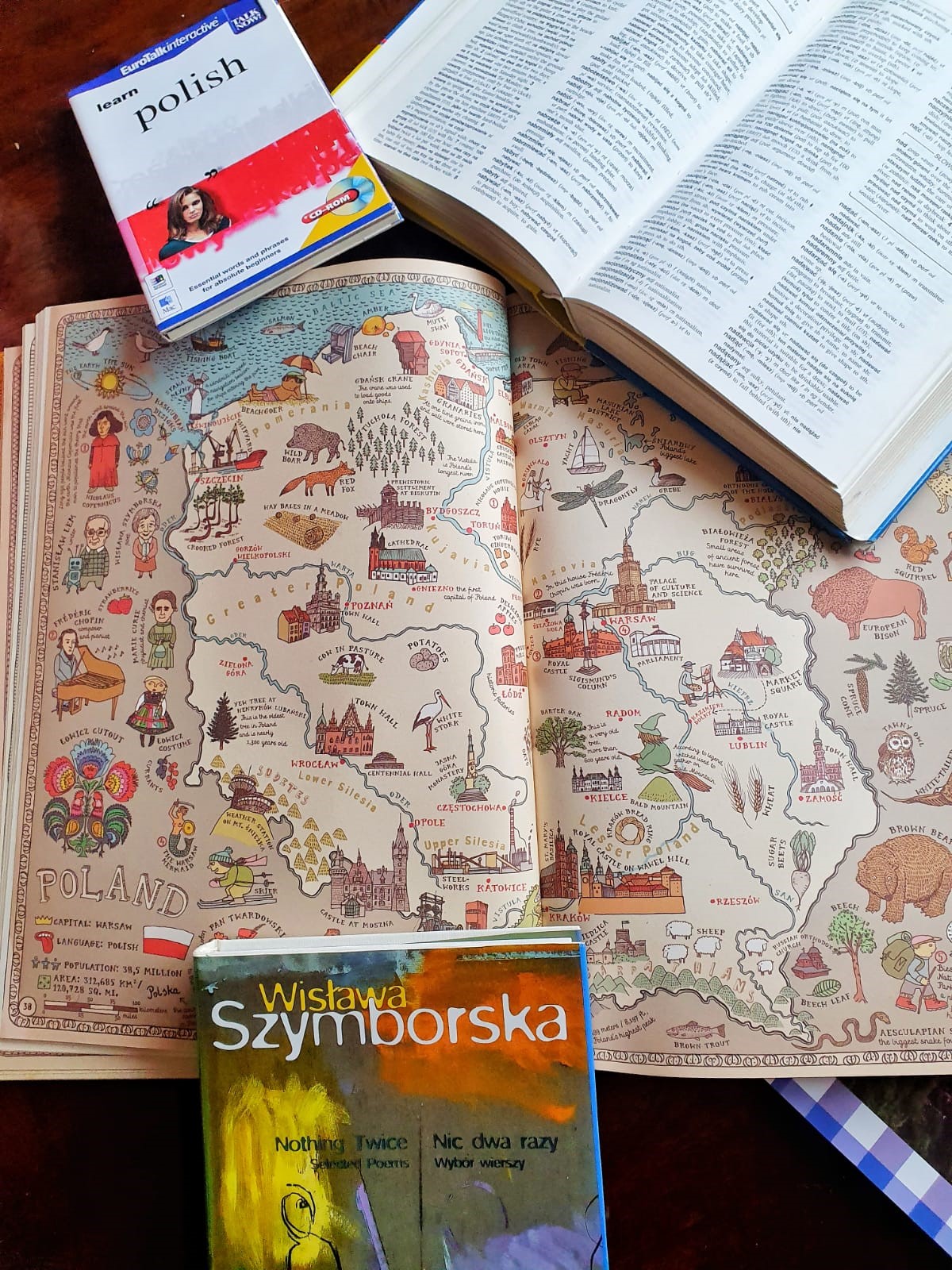Site blog
Anyone in the world
By the Hampshire EMTAS Specialist Teacher Advisors

Welcome to this new academic year. The EMTAS team is feeling refreshed after the summer holiday and looks forward to continuing their work. We’re particularly excited to support more schools this year as they work towards achieving an EAL or GRT Excellence Award. In this blog you will find out what’s in store for 2021-22 to support your professional development as well as your award submission. You will also learn more about our Heritage Honours Award, find out about staff changes in our team and catch up with important research projects.
Network meetings
The dates of our EAL network meetings can be found on our
website. We will also be holding
specific network meetings for Early Career Teachers, the details of which can
be found on the same page of our website. The termly GRT-focused network meetings will continue to be held
online this year. Like our EAL network meetings, they are free to
attend for Hampshire-maintained schools. To find out when the next ones
are, check the Training section of the EMTAS website.
EMTAS conference
We are very much looking forward to the EMTAS Conference on Friday 15th October at the Holiday Inn in Winchester. It promises to be an enlightening day with Eowyn Crisfield as one of our keynote speakers. She is an acclaimed expert in languages across the curriculum and has a wealth of knowledge in this field. Sarah Coles will be sharing her research findings on ‘Pathways to bilingualism: young children’s experiences of growing up in two languages’ and Leanda Hawkins will speak of her experiences of education from the perspective of belonging to the Romany community. There will also be a selection of cross phase workshops for delegates to take part in and stalls to see some of the latest resources available to support EAL and GRT pupils in education. Everyone who signs up will receive a free set of the latest EAL Conversation Cards valued at £45. There are limited spaces so please sign up as soon as possible. For further information and online booking please see our flyer attached to this blog.
New e-learning
We are pleased to announce that we have new E-learning modules now available:
- Supporting children and families from Gypsy, Roma and Traveller (GRT) backgrounds
- Developing culturally inclusive practice in Early Years settings
- The appropriate placement of learners with EAL in groups, sets and streams.
Our e-learning modules are free to access for Hampshire-maintained schools. To find out how to obtain a login, please see our Moodle.

Heritage Honours Award
The EMTAS Heritage Honours award, launched last academic year, celebrates the achievements of children from BME, EAL and GRT backgrounds at school and within the home/community. Children and young people can be nominated for an award by the school they are currently attending. More than 60 successful nominations were received last year. Reasons for nomination variously include success in heritage language examinations, practical and creative use of first language within the school environment, sharing cultural background with peers, acting as an empathetic peer buddy, success in community sporting events and excellent progress in learning EAL. Nominations are now open for this year. To find out more about how to nominate a pupil, see our Moodle.
Research
Debra Page is entering the third and final year of her PhD researching the Young Interpreter Scheme. Data
collection happened online due to the pandemic and the first and second wave of data collection with 84 children across 5 schools is now complete. The third and final data collection will be in November and all the data
will then be managed and analysed. In her last update, Debra shared a YI diary
and additional training resource she created. She delivered this virtually with
each school during their YI training session and initial feedback has been very positive. It is hoped that these extra resources will form part of the YI
training in the near future. The children are excited to complete their diaries
about the work that they do as a Young Interpreter. If the diary is something
that you are interested in, please get in touch. We look forward to finding out
results of what is learnt about the Young Interpreter Scheme.

Sarah Coles will update us on her own PhD in a separate blog very soon. Her PhD is part time and she’s just embarking on her fourth year of study. She’ll mainly be involved in data collection this year and a number of schools with children from Polish and Nepali families starting in Year R have agreed to support this. Sarah is hoping the families she and members of our Bilingual Assistant team approach will be similarly willing to be involved.
Staffing
At the end of last term, we wished Chris Pim a happy retirement and welcomed back Astrid Dinneen following her maternity leave. As a result, we have made some changes to the geographical areas the specialist teacher team will be covering:
Sarah Coles – Winchester
Lisa Kalim – New Forest
Astrid Dinneen – Basingstoke & Deane
Jamie Earnshaw – Eastleigh, Fareham and Gosport
Claire Barker – Hart, Rushmoor and East Hants
Lynne Chinnery – Havant, Waterlooville and Isle of Wight
Helen Smith – Test Valley
Sarah, Claire and Helen will also cover GRT work across the county.
We also welcome Abi Guler to our Bilingual Assistant team. He will be working with our Turkish families. We are delighted to have also newly recruited Fiona Calder as our new Black Children's Achievement Project Assistant.
We are all looking forward to continuing working with you. In the meantime, be sure to subscribe to the blog digest and visit our website.
[ Modified: Friday, 10 September 2021, 11:29 AM ]
Anyone in the world
By Hampshire EMTAS Traveller Teaching Assistant Steve Clark

The big leap from Year 6 to Year 7
First steps into secondary school can be difficult for any pupil. Secondary schools are usually much bigger environments with more pupils and staff than most primary schools. The differences are noticeable: pupils move between lessons rather than staying in the same room all day and there is a complex school layout and timetables to negotiate. Pupils for whom English is an Additional Language (EAL) and pupils from a Gypsy, Roma, Traveller heritage (GRT) find the transition challenging. Rather than making the leap into the unknown, some GRT pupils withdraw from mainstream education and opt instead for elective home education (EHE).
This year more than any other year it will take a concerted effort from EAL and GRT children, parents, carers and schools to support their transition. The Coronavirus has led to a long absence from school for most pupils and many will find adjusting to the routines of the school day and entering a new learning environment particularly challenging.
Many EAL families may have experienced high levels of anxiety about Covid-19 and isolation especially where they have not been able to go and visit relatives or, in some cases, have any contact with them at all. Some families will have suffered bereavement and their children may benefit from bereavement counselling and/or ELSA support. EMTAS can also offer first language support for schools and families, mentoring for pupils and cultural advice for staff.
Many of our GRT families are fearful of the impact of the virus on their children and their communities and may be very reluctant to allow their children to return to school for this reason. If this is the case, schools can ask for EMTAS support for staff and the GRT communities affected.
Many GRT families are self-employed and due to the nature of their work may be experiencing high levels of anxiety due to the impact of the lockdown on their ability to continue working. Some families may be trying to off-set this by travelling further afield to secure work.
Hampshire EMTAS is, as always, ready to support all concerned with transition. Usually, we offer a transition programme for GRT pupils and EMTAS staff visit pupils in person to support and facilitate their journey from primary school into secondary. However, this year, because of social distancing, EMTAS staff are instead offering this support via telephone and can liaise with EAL and GRT parents and carers this way to answer any questions they may have and to support them with the transition. In October, after the child has started in their secondary school, an EMTAS member of staff will arrange a follow-up visit to see them to check they are settling in.
What EAL and GRT pupils, parents and carers may want to know
Lunch systems - Many schools are cashless and operate a fingerprint recognition system to pay for lunches. It is important to stress to GRT and EAL pupils and their families that their fingerprint will not be used for any other purpose.
Mobile phones - It is important to communicate to GRT and EAL pupils, parents and carers, the school’s expectations around the use of mobile phones during the school day and to clarify how they can contact each other in exceptional circumstances.
Homework - Starting a conversation between school staff and GRT and EAL pupils, parents and carers can prove highly effective in ensuring that any potential problems with completing homework are identified early on and flexible solutions found.
Uniform and equipment - It is recommended that schools have a full and clear conversation with GRT and EAL parents and carers prior to the child starting in Year 7 about what equipment the pupil will need and what is acceptable uniform including jewellery and hairstyle. This may give school staff an opportunity to address any concerns the family may have regarding cost.
Cultural factors should be considered e.g. clarification about the provision of separate changing facilities for PE and modesty -related issues to do with PE kits etc. These are particularly relevant to Muslim students and their families.
Religious observance - Sikh boys may wear a patka (head covering) or other hair covering and may, for religious reasons, not have their hair cut; hijabs may be worn by some Muslim girls. Many Muslim pupils, especially once they are in secondary phase, will observe fasting throughout Ramadan followed by Eid, a day they may request permission to take off school for religious observance.
Attendance - Communication between GRT and EAL pupils, parents, carers and school staff is vital to ensure a good level of attendance (96% or above) is maintained. Clear guidance should be given to GRT and EAL pupils and parents on how to report any absence. Maintaining a good relationship with the GRT and EAL families will help to continue the conversation and to help identify any problems with attendance.
Art, Design & Technology, Food Tech and Science – Discussions between school and parents and carers about funding and the supply of ingredients and materials for these subjects can help avoid any potential misunderstandings or disruption to the pupil’s learning.
Ideas for schools to build confidence from Day One in September
The better prepared a pupil is for their transition, the more smoothly it will go. It is a good idea for the primary school to show pupils a timetable from a secondary setting and explain to them what it means. If the secondary school can provide a digital tour of the school this year to help ease anxieties about what the new environment looks like, this would help pupils gain a little knowledge about what to expect to see on their first day. A short film introducing key staff and the Year 7 Tutor team would allow the pupils to recognise these people more readily.
Communication with EAL and GRT parents and carers in the next few weeks will help identify and hopefully answer any questions the child and parent may have.
Schools running the Young Interpreter Scheme or New Arrivals Ambassador Scheme will be able to guide pupils into supporting their peers’ transition into school.
Hopefully all our EAL and GRT children will transition successfully in September and settle back into the learning environment quickly, making new friends and picking up with old ones. Give them time to think and process as the language and pressures of a new setting may take time to build up their confidence and to participate.
For further advice and guidance please visit the Hampshire EMTAS website and the Guidance Library for EAL and GRT.
Also see our dedicated pages for:
- GRT Advice and Guidance
- EAL Advice and Guidance
- Distance Learning including Covid-19 advice and guidance
For further information please contact Sarah Coles at sarah.c.coles@hants.gov.uk or the EMTAS office at emtas@hants.gov.uk.
Subscribe to our Blog Digest (select EMTAS)
[ Modified: Monday, 29 June 2020, 9:19 AM ]
Anyone in the world
By Hampshire EMTAS Bilingual Assistant Eva Molea

In my Diary of EAL Mum I share the ups and downs of my experience of bringing up my daughter Alice in the UK. After 9 weeks of lockdown and with the happy prospect of school re-opening, I reckon it is time for me to reflect on the last couple of months, especially on the irregular shape that Alice's education has taken.
I would like to start with a big shout out to all teachers, TAs, and school staff in general. You, guys, are my true heroes. Where do you get all your patience from? How can you manage with 30 children, day in - day out for 39 weeks a year, when my own one has driven me round the bend in not even 10 weeks??
Anyway, let's get back on track. When the nation was told that the 20th of March would have been the last day of school for the foreseeable future, I was hit by an education frenzy, so I went to the bookshop and bought:
- as many learning packs as I could possibly carry
- two books that I believed Alice should read (=I wanted to read) and one that she had asked for
- a pack of story cubes
- a notebook as we are always short on paper, and a letter set should she ever feel the need for correspondence
- a jigsaw puzzle of the periodic table of elements
- sketchbook (hoping that Alice would keep a diary of this peculiar period).
Proud of my shopping, I showed it to Alice when she came back from school on the 20th of March, but her reaction was far less enthusiastic than I had expected. I wondered why...
The school had provided her with SATs buster test booklets for maths, SPaG and reading and a grid of activities on Ancient Greece. They had also set tasks on the digital platforms for the children to complete.
On Sunday the 22nd of March, I sat down with my husband (aka the Headmaster) and made a learning plan for the first week: 5 days, 5 subjects per day. I was very proud of my broad and balanced curriculum.

So, on Monday morning, bright and early, we sat down to work. We focused on the booklets and the digital activities and easily Week 1 was out of the way.
On Week 2, having completed all the booklets and digital tasks, we approached the Ancient Greeks grid. I really enjoyed this topic. In Southern Italy, also known as Magna Graecia (Big Greece), Ancient Greek culture had shaped ours well before the Romans, and we learnt the ins and outs of it in school, so it was lovely to be able to share this with Alice. We did some learning on the BBC Bitesize website; we read some myths from books we had brought with us from Italy; we used the story cubes to write Alice’s own myth. But I was not satisfied. So, we had a Greek Day, where we:
- tried to learn Sirtaki, the Greek traditional dance, following some videos on YouTube;
- dressed Alice up as a Greek Goddess (YouTube tutorial);
- learnt the alphabet and the polite words in modern Greek, and looked at how Greek language has influenced most European languages, including English;
- cooked pastitsio and tzatziki, following the recipe that my lovely Greek colleague, Eva P, had recommended. And bought baklava…yum!
This was a great way for the whole family to learn new things and share our knowledge with Alice.
Weeks 3 and 4 of lockdown were the Easter holiday, and my lovely child decided she was not going to touch any schoolbooks and the Headmaster agreed, so I could be off task too and enjoy the sunshine. We did a lot of drawing tutorials on the YouTube channel of the children’s illustrator Rob Biddulph, that are glued in the sketchbook.
Alice devoured one of the books I had bought for her (The boy at the back of the classroom), and tried the other one (When Hitler stole pink rabbit) but found it too hard (or not interesting enough, I’m not sure). Fortunately, dance and gym went virtual that week, so we had enough to keep her entertained. We also played some traditional Italian card games.
Getting back to work on week 5 proved to be quite hard. By then, Alice was feeling very lonely and bored because we did not have the skills to keep her interested and, not to be underestimated, we also had some work to do. But fortunately, the school set more structured homework for the children and we were not sailing in the dark anymore. Having daily work to complete was very helpful, as Alice had some tasks she could carry out independently and ask for the occasional help, whereas when she had to make research on the Internet I was a bit concerned about the appropriateness of content she might come across. For guidance, I also re-read the EMTAS information leaflet on safeguarding and wellbeing which includes online safety .
From week 5 onwards, home learning has been an emotional rollercoaster. We have gone from enthusiastic reactions to some tasks to flood of tears for others, covering all the shades in between. Obviously, had Alice been in school, her learning would have been tailored to her abilities (including the right challenges) and more interesting for her. But I have to say that I really enjoyed learning with her, especially because we all had a very intense EAL experience as we used Italian to investigate, question, explain and reinforce everything and both the Headmaster and I have noticed that Alice’s Italian has improved and her vocabulary has widened, with many new and more interesting words being used. She has also enjoyed listening to audiobooks in Italian and asked me to read to her in Italian at bedtime. EAL parents will be interested in this survey on multilingual language use during the COVID-19 Pandemic.
I pushed my luck and asked her how these 9 weeks had been for her. At first, I got a single word answer: “Boring”. I was expecting that. But then she told me that using Italian for maths had made the subject easier as she still counts in Italian (I didn’t know that), that she felt that her translation skills had improved, and her vocabulary in both languages broadened.
Despite the strangeness of this lockdown period, I really enjoyed playing school with Alice and loved seeing her eyes brighten up when there was something that interested her or when she had finally secured the concepts she was struggling with. But now we all, especially her, can’t wait to get back to school.
PS: The lovely learning packs I had bought have never been touched in these 10 weeks. I will have to force them upon Alice during the Summer holidays…
Visit the Hampshire EMTAS website
Visit our Distance Learning page
Subscribe to our Blog Digest (select EMTAS)
[ Modified: Monday, 22 June 2020, 8:54 AM ]
Anyone in the world
PhD student Debra Page updates us on her progress with her research on the Young Interpreter Scheme and invites schools to participate in the next steps of her project – extra brownie points for your EAL Excellence Award submission guaranteed!
Hello readers. I hope that you’re familiar with my name by now. I am conducting research on the Young Interpreter Scheme under the supervision of the Centre for Literacy and Multilingualism at the University of Reading and with Hampshire EMTAS as a collaborative partner. Our aims are to evaluate the scheme’s impact on children’s language use, empathy and cultural awareness by comparing Young Interpreter children and non-interpreter children. Additionally, we need to hear your experiences of teaching children with EAL and of running the Young Interpreter Scheme.
It’s been an interesting 5 months since my last blog and the world has changed. The team and I are busy adapting my PhD to fit in to this new normal. On May 4th, I was invited to speak at the first virtual Basingstoke EMTAS network meeting about contingency plans. It was great that so many were able to join and share their thoughts - and are still interested in being part of the research. If you didn’t make it, you can read some information below, with more details available on the PowerPoint slides from the network meeting (attached).
What’s happened so far?
MSc questionnaire findings
Some of you may recall completing my questionnaire for my MSc. This was about working with children with EAL and experiences of running the Young Interpreter Scheme. The main findings from this are available in my previous blog. The team also presented a poster summarising the findings at the NALDIC conference last November.
Planning and preparation
The first 8 months of the PhD have involved finalising the logistics of the research and data collection. Albeit now plans have had to change and we are working with schools on how best to adapt the data collection. Many decisions had to be made about how best to achieve our aims. This involved a lot of research, reading and discussions about the tasks to assess the children, the who, when and where of data collection, and all the requirements for ethical approval from the University of Reading.
Preparing assessment tasks
We have almost finalised a series of pupil-friendly tasks for the children involved. This includes non-verbal aptitude, vocabulary, empathy, grammar, intercultural awareness, and peer to peer interactions. Our job now is to think about how we can adapt these tasks to fit into schools’ new ways of working following the Covid-19 pandemic. My favourite task is the barrier game where children work together to reproduce a given route on a map of a school and school items. Further examples of the assessments are in the PowerPoint.
Young Interpreter Training
One focus of this project is to evaluate the Young Interpreter Scheme training with possible amendments. We want to see if specific training in word-learning strategies can enhance the set of tools Young Interpreters use with their buddies. After many ideas and discussions, I have modified two short stories to use in session 4 of the children’s training at KS1 and KS2. The stories use a strategy called Word Detective, which is from a book called Word Aware – Teaching Vocabulary. They should provide Young Interpreters with ways to help buddies understand new vocabulary using English. These were made in collaboration with EMTAS and we want them to be useful beyond the research project so please let us know your thoughts.
What would being part of the research look like for schools?
we would need agreement from your Headteacher, and they would need to complete our consent form
the Young Interpreter coordinator would need to identify 10-15 children ready to train as Young Interpreters. In total I aim to work with around 50 YI children and 50 non-YI children of the same age, across 3-5 schools
children need to be in Years 1-6 (some of the assessments we use require children to be at least 6 years old)
I will also assess non-Young Interpreter children of the same age and gender as the Young Interpreters you will have identified. These will be known as control group children and serve as a comparison between children who are Young Interpreters and children who are not
I would need help to distribute pupil information sheets and collect signed parental consent forms
I would need to liaise with you to arrange a suitable time for running the Young Interpreter training over a 4-week period; 1 training session per week
I would need to be involved with the 4th and final training session to deliver the training stories, either in school or via video chat
I need 1 week either side of the Young Interpreter training to complete the tasks with the children – 1 week for the pre-training assessment and another week for the post-training assessment. I will spend this time assessing the children immediately before YI training and immediately after training
6 months later I will liaise with the school to arrange an appropriate week for me to assess the YI and control children again
there are no assessments for teachers or parents to complete.
What’s next?
Adaption of the tasks
We will continue working on how our series of tasks can be adapted in light of social distancing rules and government advice.
Revised data collection plans
The original plans for data collection had me in school now, piloting the tasks with children to allow enough time for refinement before the main data collection in September 2020. Realistically now, piloting will not happen before the end of this school year. Hopefully, I can start working with children in October and complete all data collection in the 20/21 academic year. Watch this space.
Creating a YI diary
We want to capture how frequently Young Interpreters are working with EAL peers, what kind of activities they are doing, and what they enjoy the most. If we can understand what works, and what isn’t being used, this would inform future resources for your school and EMTAS. The number and type of interactions can also be taken into account in data analysis. The idea is for children not to have to write too much, or at all, unless they want to add writing. We are in the planning phase for this and your views on the format are welcomed. Perhaps a weekly view, with example activities where children can tick and draw a smiley face? Or stickers they can use? We want your input on this so it’s useful for you and the children as well.
Online questionnaire
After your responses to my MSc questionnaire, it has been revamped for the PhD. The team and I encourage as many staff as possible to complete the questionnaire. This includes people who are running the scheme, who aren’t running the scheme, and staff who work with children with EAL. This anonymous online questionnaire should take around 15 minutes to complete and will allow myself and Hampshire EMTAS to discover what you really think about the scheme, your experiences of participation, and working with children with EAL. Finding out your views in running the scheme (or not) will help EMTAS improve and expand it, plus you will be helping to shape its future. Take part now and tell us what you think.
Please refer to the PowerPoint slides for further details and opportunities for you to provide feedback on the project. You can e-mail me your thoughts and register your interest in taking part in the research at debra.page@pgr.reading.ac.uk. I am looking forward to seeing you all again in person. Stay safe and thank you for all for your work and help with my research. And please complete and share the questionnaire!
Visit the Hampshire EMTAS website
Subscribe to our Blog Digest (select EMTAS)
[ Modified: Monday, 18 May 2020, 9:33 AM ]
Anyone in the world
In this blog, Hampshire EMTAS Bilingual Assistant Eva Papathanassiou reviews Mantra Lingua’s Kitabu dual-language ebook Library.
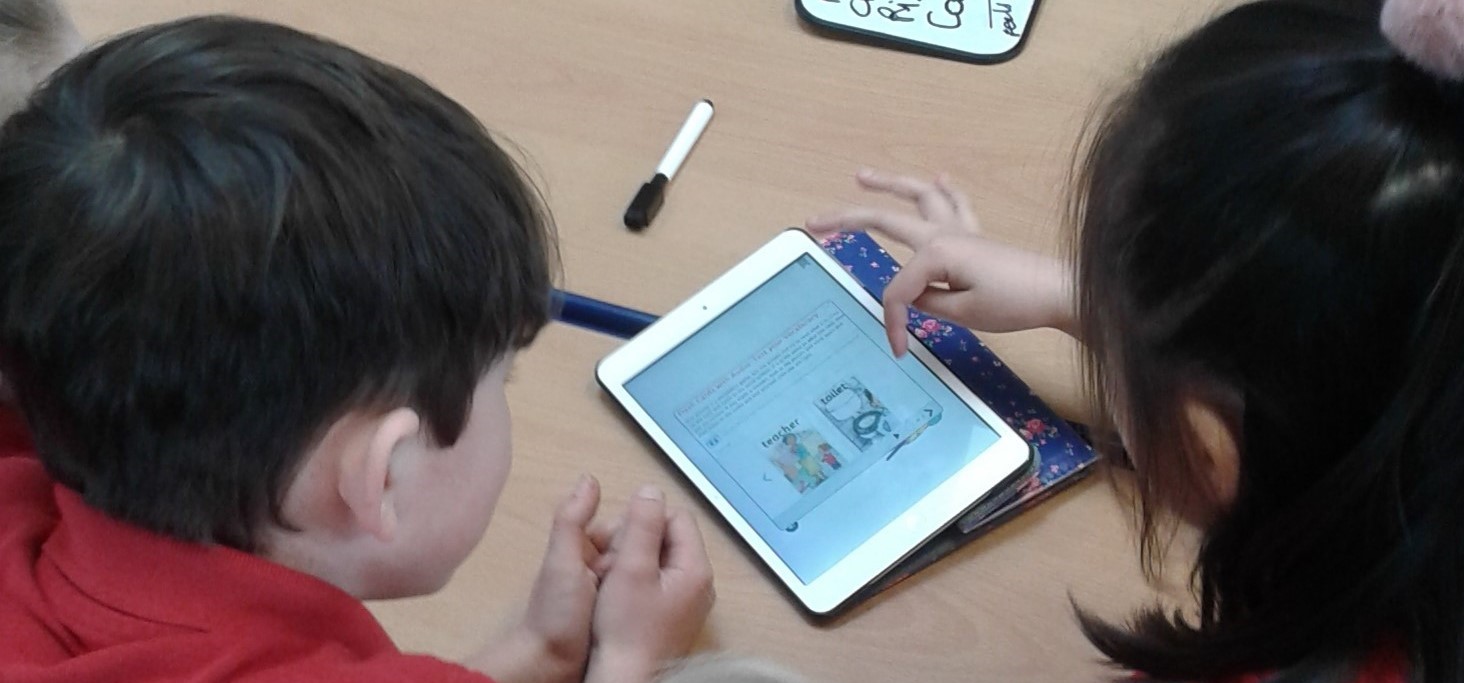
I got very excited and relieved a few months ago, when I opened my work inbox and read that I was invited to have access to an application which is literally an e-book library! Excited, because as a Bilingual Assistant, I know how any first language use, tool and resource can be extremely useful and significant for supporting children who have English as an Additional Language (EAL) to engage with the curriculum. Relieved, because this rich and diverse library would be in my hands, at any place, at any time, in less than one minute, without having to travel to our main office to get a resource or having to ask my colleagues to send to me at short notice.
I will briefly present to you this tool which is available as an app (download from Google Play or App Store) as well as through a URL on laptops and computers. I will then share with you two examples of how I have used it and why I am still so enthusiastic about it.
The Kitabu dual-language ebook Library by Mantra Lingua is a bilingual, interactive e-book library which gives you access to more than 550 books in 42 languages. The books are grouped by origin of language and type/genre. The majority of the books are fiction and folk stories for primary to early secondary (KS3) children. The fantastic thing about this library is that every e-book has both text and narration in two languages and different extra features. For example, you can create and share notes in any page, you can highlight a word or you can use a pen to draw, write or erase in any place in the text. You can also ‘tap around to hear the sound’ - tap around the page and hear the sounds of the illustration, making the book very vivid and appealing, especially to young children.
Most e-books contain a video of the story in English and follow on activities at the end for vocabulary and comprehension such as flash cards, labelling the parts of a picture, matching pairs, sequencing pictures and video observations matched with reading comprehension multi-choice questions. As you will read later on, I found the activities extremely useful to both EAL pupils and myself, especially for making the children feel more relaxed and confident, creating a rapport and for assessing first language literacy skills.
I first used the Kitabu dual-language ebook Library last autumn, when I visited a Primary School to meet and support a Romanian pupil in Year 2, Alexandru*, who had recently arrived in Hampshire. One important part of my job is to write an initial profile report of the EAL pupil by collecting important information about the child, their personality, their concerns and challenges, previous education, the level of their literacy in first language and their proficiency in English at the school starting stage (in partnership with the school teacher). Sharing the same language and culture makes the pupil’s initial profile creation a more straightforward task. However, someone who doesn’t share the child’s first language would find the process more challenging due to the lack of mutual understanding and immediate rapport that comes more naturally with someone who shares the same heritage. I don’t speak Romanian so I needed to use any tools and means available that would facilitate this task, but most importantly would enable the pupil and myself to get to know each other a little bit more and establish a bond, a relationship of trust. After a brief cooking activity with his class, it was time for me to get to know Alexandru better and assess his literacy skills. The Kitabu dual-language ebook Library came to my rescue and in two minutes, I had in front of me a selection of 8 bilingual books for Alexandru to choose from. Alexandru seemed very much at ease with the tablet and he happily took it from my hands to explore it. When he noticed the title of the books in Romanian, his face lit up; he chose the book Let’s Go to the Park/Hai să mergem în parc and we both started exploring straight away.
Alexandru tapped excitedly the different parts of the book and heard the narrative in Romanian and the different sounds of the illustration, scenes of a park full of children playing with their families. Slowly, he read some of the sentences in his first language and he heard the audio and me reading the same sentences in English, whilst he was pointing to the pictures and tapping to hear the different sounds. We moved on to the activities at the end, and we looked to the bilingual glossary with matching images from the book where we could both hear and read the words in both languages. Alexandru had the opportunity to learn some new English words, teach me some Romanian ones and correct my pronunciation and at the same time he felt happier, more relaxed and engaged. He also wrote some words in capital letters in his own language showing his writing ability, which seemed appropriate to his age and previous education. Alexandru also built his vocabulary further with different games when he labelled the parts of an image by dragging the correct word at the correct place and matching different pictures to words on the tablet and submitting his answers. This e-book enabled me to engage in an informal conversation with Alexandru, made both of us feel more at ease and get to know each other a little bit better while I had the opportunity to assess Alexandru’s first language (and partly English) listening, speaking, reading and writing skills.
A second example where I found the Kitabu dual-language ebook Library extremely beneficial was when I was asked to take over the support of a Japanese girl in Year 2 at another Primary School after one of my colleagues left our team. Hinata* had learned to write in her first language at nursery in Japan and firstly joined the school in the summer term of the previous academic year, in Year 1. The school had very successfully used Hinata’s previous skills for various writing activities and the EMTAS department had already sent a bilingual book for Hinata to read together with her classmates. Hinata appeared rather shy when she had to speak to her teacher or in front of her class and she used one word answers or gestures for communication.
During one of my visits, I was asked by Hinata’s teacher to supervise a ‘guided reading’ group activity where Hinata and three of her friends would have the opportunity to read and discuss the bilingual book, Mei Ling’s Hiccups/メイリンのしゃっくり, lent by EMTAS as a hard copy.
Hinata appeared reluctant to read out loud in Japanese but she did read each page to herself and subsequently she happily heard the rest of the group who took turns to read the text in English. Very soon Hinata appeared more relaxed and took her turn to read parts of the text in English. Everyone was impressed with her reading skills and praised her efforts. We got into a conversation about parties and Hinata was able to answer closed questions and give one-word answers, using key vocabulary from the book i.e. balloon, party, drink. Having been exposed to the Kitabu dual language ebook Library very recently, I enthusiastically searched to find any appropriate Japanese books. I was thrilled to find Mei Ling’s Hiccups as an e-book and straight away I found the follow-on vocabulary and comprehension activities. In school, Hinata together with her classmates quickly got engaged in matching pictures to words and labelling different parts of a picture. Soon Hinata appeared much more confident to demonstrate her comprehension by tapping, dragging and listening to the questions, very often volunteering her answers and at the end we went back to the book text and Hinata heard parts of the story in Japanese and read several phrases in English.
Last week, I visited the Primary School again for Hinata’s follow up visit. I was looking forward to seeing and supporting Hinata again and I remembered how much Hinata together with her classmates had enjoyed the bilingual book and its linked Kitabu activities, the first thing I did was to download another Japanese e-book from the app.
Hinata was joined by three other children and all together we went to the school library to read the new e-book, Tom and Sofia start School. Hinata was again hesitant to read in her language but she was very happy to listen to the text in Japanese, read some pages to herself and the rest of the group seemed excited to hear the story in a different language and took turns to read or hear the audio of the text in English. Very often after this activity, they asked Hinata questions like ‘is this how you say the word cool?’ repeating the last word they heard from the Japanese audio. Hinata replied by ‘yes’ or ‘no’ and she was also able to answer a few comprehension questions with one word answers with no hesitation. Afterwards, we watched the animated video of the story and we proceeded to the Video Observations follow on activity where you answer comprehension multi choice questions based on what you have just seen. Hinata’s confidence grew and very soon, she volunteered to answer the questions by choosing the correct answer on the tablet, take her turn to read small portions of the text in English together with her peers and participate in the other activities such as labelling the parts in a picture or matching pairs of images and words.
I used the Notes feature to write a comment on where and how Hinata read in the book and the children used the pen to circle different words in the e-book to demonstrate their comprehension. We highlighted more tricky words or phrases like ‘feel welcome’ and the group discussed what the phrase meant with examples. They also had the opportunity to listen to and read the definition of the word ‘welcome’ in English from an e-book. Hinata took part in all group activities contentedly and apart from learning through a new story and its key vocabulary, she was enabled to demonstrate her listening and reading comprehension and reading out loud skills confidently in front of the small group of her peers. In addition, she paid attention to the given instructions in English (read by me) or heard by the activity audio and followed what she needed to do together with her classmates, proud when she submitted a correct answer. At the end of the session, the group talked about their ‘special friends’ at home, pets or toys and Hinata told everyone that hers was a bunny.
Knowing how important it is for EAL pupils to continue using their first language in school and at home, the Kitabu dual-language ebook Library with text and audio in two languages, interactive activities and animated stories gave me an excellent opportunity to create a rapport with children who do not speak English or Greek (my own first language) and enabled me to assess their first language and English skills, through story-telling, informal chats, videos and games. Both Alexandru and Hinata felt more confident and engaged, happier to express themselves and participate, something more evident in a group setting.
The Kitabu dual-language ebook Library with its extensive bilingual library is another excellent tool for enriching children’s learning environment by use of their heritage language; something essential for confidence-boosting, self-expressing, demonstrating academic knowledge, studying more efficiently and independently and most importantly maintaining their culture and sense of identity.
*pseudonym
Find out more about Kitabu dual-language ebook Library (Mantra Lingua is offering parents of learners of EAL free access to the Kitabu dual-language ebook library until the end of August - see attachment for details)
Visit the Hampshire EMTAS website
Congratulations
to Eva who was appointed as our new Bilingual Assistant Manager since writing
her blog.
[ Modified: Thursday, 24 November 2022, 9:16 AM ]
Anyone in the world
The Hampshire EMTAS Specialist Teacher Advisors have been supporting schools to complete the EAL Excellence Award for over a year now. Many schools have successfully earned their Bronze and Silver awards and are already working hard to achieve the next level up. Working with schools to drive EAL practice and provision forward through the EAL Excellence Award has highlighted areas of support which the EMTAS Teacher team has been keen to address.
One particular aspect of EAL good practice which many schools have had to consider is the use of first language as a tool for learning. Whilst most could confidently say that pupils felt comfortable speaking their languages at school (a feature evidenced at Bronze level), EAL co-ordinators felt that pupils could be better encouraged to use their languages to access the curriculum in the classroom (a feature evidenced at Silver level). In response to this, the EMTAS Teachers have been working closely with their schools to introduce ideas and strategies to support this and they are now keen to share their work with the EAL community.
Discover our brand new materials which consist of a narrated animation (below) with supporting material you will find attached to this blog: a transcript, activities based around the animation and an aide-mémoire summarising key strategies. Our work is still ongoing with a brand new piece of EAL elearning currently under development – watch this space!
Visit the Hampshire EMTAS website
Subscribe to our Blog Digest (select EMTAS)
[ Modified: Wednesday, 5 February 2020, 12:16 PM ]
Anyone in the world
By Hampshire EMTAS Polish-speaking Bilingual Assistants Magdalena Raeburn and Katarzyna Tokarska.
Have you ever felt frustrated or out of your comfort zone because of communication barrier? Have you been on holiday abroad and found it tricky to explain what you need to your local shops, hotels or restaurants?
Imagine now, how much more complex and difficult a situation of an EAL child in a UK school might be. Try to put yourself in their shoes for a while… They come to the UK not for a holiday and not out of their own choice. They have to challenge themselves against a new language, new culture and a local community as well as the unknown school set of rules and regulations.
EMTAS Empathy Training will help you understand the complexity of the challenge that the EAL child faces every day. The aims of the session are:
- To increase awareness of the challenges that EAL learners face in the UK schools
- To give an insight into Polish learners’ cultural school differences
- To share ideas of how to approach the most common challenges experienced by the EAL learners.
During the training you will have a chance to become an EAL learner in a Polish classroom by taking part in a practical group activity on the geography of Poland. You will be expected to understand the teacher’s presentation, participate in a variety of activities, including group work, match the pictures, read and follow instructions as well as answer questions.
Would it be ‘only’ a language barrier…?
The training participants concluded that acquiring the language is only a part of the bigger picture. Cultural traits, local history, geography and customs are also a part of learning when they are trying to integrate into the new reality.
Our ‘students’ admitted that it ‘really made (them) consider other barriers than language’.
They also discovered that the manifested child’s behaviour in the classroom might have different roots rather than the ‘obvious’ ones… One of the participants said: ‘Very useful to understand how they would/could come across as ‘naughty’ or ‘distracted’’. It was an eye-opening experience.
Our workshop attendees revealed that their ‘survival’ strategy during the session was to answer ‘yes’ to any teacher’s attempt of communication. Have you got such EAL children in your classroom? Our workshop ‘students’ said it was their technique to use to be left alone rather than having to participate in the activity they do not feel competent or confident with. Our participants also felt ‘frustrated’, ‘confused’, ‘not very clever’ and ‘wanted to avoid being asked’. They were ‘easily disengaged’, ‘embarrassed when put on the spot’, ‘wanted to give up’ and ‘finally turned off’.
The session was an opportunity to face your own emotions as well as share the strategies, resources and ideas. Some strategies could involve researching information on the EAL child’s culture, educational system as well as taking your pupil’s personal experience into account.
When the EAL children join the UK classrooms, they need more than technicality of the language and pedagogical strategies. They need our empathy at every step of their challenging, new journey.
Take part in our empathy exercise at the Basingstoke EAL network meeting on January 28th. Limited spaces available and free to Hampshire maintained schools. For enquiries, please contact Lizzie Jenner, lizzie.jenner@hants.gov.uk.
Subscribe to our Blog Digest (select EMTAS).
[ Modified: Wednesday, 22 January 2020, 4:41 PM ]
Anyone in the world
In this new blog, Annie Kershaw shares her experience of using the EAL Excellence Award and Young Interpreter Scheme to develop practice at her school in Nottingham.
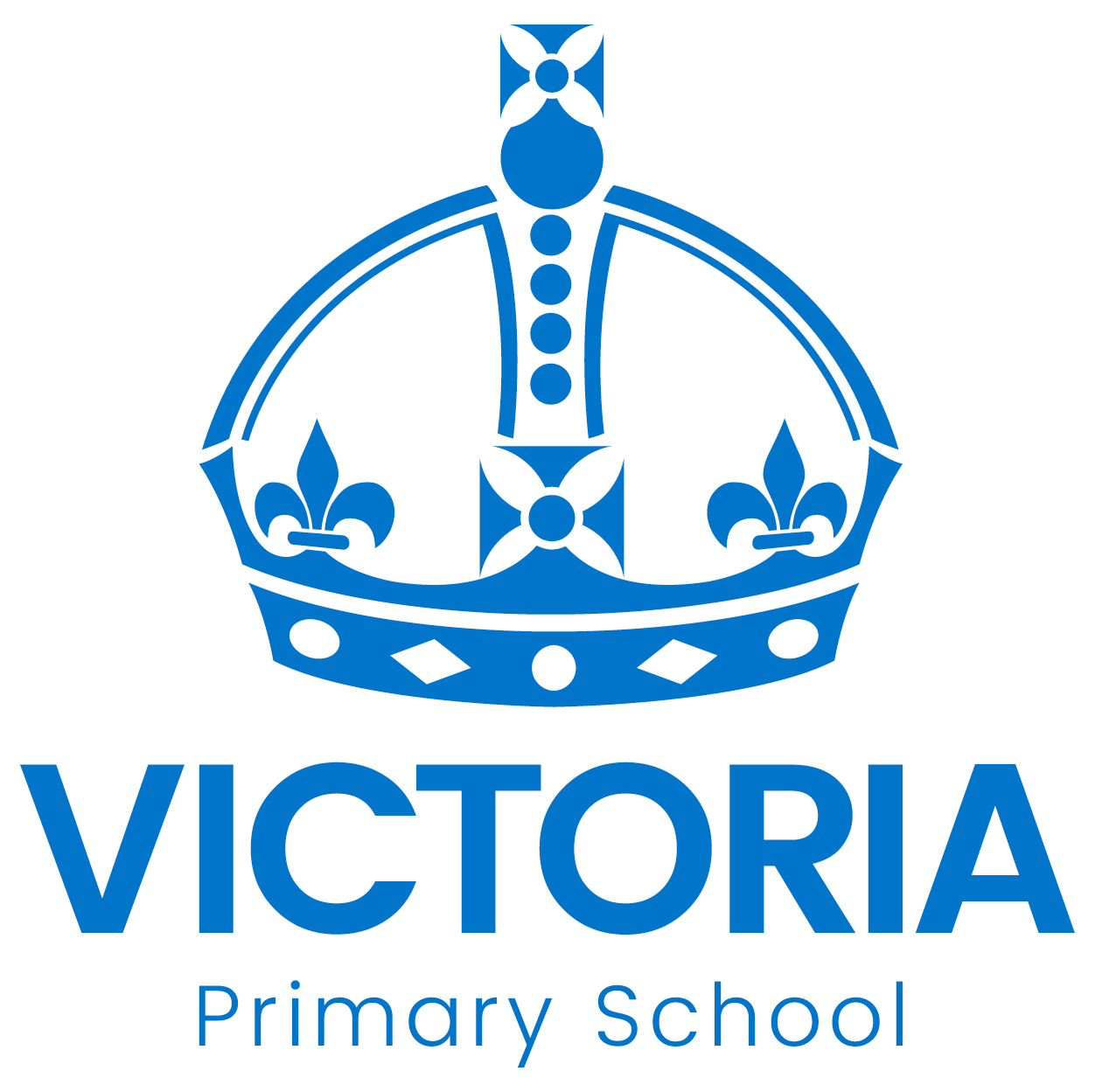
I am an EAL Co-ordinator for an inner city School in
Nottingham - Victoria Primary School. The headlines for our school are:
- The proportion of pupils from minority ethnic backgrounds is well above the national average.
- There are 33 languages spoken at the school.
- The rate of pupils’ mobility is well above the national average.
- The proportion of pupils who are disadvantaged is well above the national average for primary schools.
In 2018, in response to the Local Authority cuts leading to a much reduced central service for supporting schools with EAL and BME achievement, Nottingham City sent out a request for experienced practitioners to apply to become an Advanced Practitioner of EAL (APEAL); The LA would provide specialist training and support for the APEALs and in return they would complete an in-school EAL audit and action plan, identifying current examples of best practice, an action research project, write up the report for publication on the LA website, and the APEALs would each deliver a workshop at the Local Authority EAL Annual Conference. In exchange, the APEALs received consultant support and training from the Local Authority, a network of cross-phase peers for support and specialised professional development, and access to the Hampshire EMTAS Moodle.
As EAL Co-ordinator, the Moodle was just what I was looking for. I quickly engaged with the e-learning packages for myself and for colleagues and it was great having a tool to hand which confirmed and supported our good practice in school. One of our proudest achievements was finding a way to formalise the support and training for our ‘Language Ambassadors’ through the Young Interpreters Scheme. We had already nominated children to undertake the role and asked them to do some tasks informally, but this really gave us, as a school, a structure to develop their role further, some well thought out materials to use in their training and an end goal through awarding certificates and badges. In fact, the role of the Ambassadors was recently acknowledged in our OFSTED inspection:
“Staff promptly assess the stage in learning English when pupils start school and tailor language development accordingly. They are assisted by 10 ‘Language Ambassadors’. These are pupils who have completed the accredited ‘Young Translators’ training and support other pupils, their families and staff.”
Finally, as with many of my increasingly isolated EAL Co-ordinator colleagues, I am always reflecting on whether my practice is ‘correct’ and ‘current’ or not. For me, validation for my school and for my own role came in the form of the EAL Excellence Award, developed by Hampshire. As a school, we decided to pursue the award as we accept that EAL is a big part of our identity and that we had made a lot of progress in recent years with our practice; the award seemed to us to be a good way to acknowledge that progress and a useful tool to raise the EAL profile of our school. As EAL Co-ordinator, it gave me a real structure for evaluating where we are, and how we can keep improving and moving forward with our practice in school. My colleagues were positive and encouraging and, when needed, were more than happy to provide the evidence and the support for me.
We were delighted to receive the Silver Award recently and I am already mentally preparing for our journey to Gold! The ‘Gold’ criteria has motivated me to think more holistically around our Parental Engagement and how we can make steps in this area. I look forward to the challenge!
Visit the Hampshire EMTAS website to find out more about the EAL Excellence Award and Young Interpreter Scheme.
Subscribe to our Blog Digest (select EMTAS).
[ Modified: Wednesday, 8 January 2020, 5:02 PM ]
Anyone in the world
By Mariana, Young Interpreter at Cherrywood Community Primary School
Hello everyone. My name is Mariana and I am ten year old. I am writing to share my experiences during the responsibility being a young interpreter for the last two years. I signed up because I like providing additional support to pupils who are learning English as an additional language.
When I was young, I went through the same thing as the pupils who I have worked with in the past terms. They did not know how to speak a lot while still needing help to join in. When I came into pre-school and Ash I did not know how to speak to people however luckily I had help from adults and even other children.
I strongly believe that I was chosen for this role because of my ability to communicate and help the other children to integrate in with their class and mates. I am also confident and do a lot of extra work around other languages.
On my first year of young interpreters all of us had special training to understand what we had to do in the different situations which might happen with Mrs Tagima, a very kind lady. Some of the things we done were playing a matching game around different countries, creating a map around us so we could learn new things around everyone and creating scenarios on situations and how we should act.
Last year I worked with a boy in year 1 which was from Nepal and this year I accepted a challenge by working with a new boy from Romania which cannot speak a lot of English.
During the role I have done lots of things which evolve:
- Helping them join into their PE lesson.
- Doing their work with them.
- Making sure that they understand.
- Helping with counting and reading.
Each year I enjoyed and had challenges to do with this role. Some of the things I found quite tricky were speaking and helping the boy because he nods but sometimes did not understand. I enjoyed quite a lot of things but here are some:
- Joining in with them.
- Helping them join in in class.
- Seeing their smiling faces.
Thinking of the book and game I made was easy. When I was in reception class my mum made a book for me to join in more. As for the game, when I was little I had a game like that so, when I observed him in class to see what he needed, I remembered that I could make him something like that to help him.
The games and books are to boost his confidence while learning English. As for one of the games, it is used to help him with his class work. Incredibly, I made the games only with household objects. My friend (Romanian) helped me translate English to Romanian.
You play the games by matching the words and numbers to their correct pairs. The book is really just to boost his confidence (like a picture translator).
Thank you very much for reading. I strongly hope you understand why I wrote this blog.
Thank you!
Mariana on behalf of the young interpreters at Cherrywood Community Primary School
Find out more about the Young Interpreter Scheme on the Hampshire EMTAS website.
[ Modified: Monday, 31 March 2025, 2:58 PM ]
Anyone in the world
In a previous blog, Masters candidate Debra Page launched a questionnaire aimed at exploring staff experiences of the Young Interpreter Scheme. Now officially a PhD student after successfully completing her Masters with a distinction, Debra updates us on the results of her questionnaire.
Hello readers. I hope that you’re familiar with my name by now, but if not I am conducting research on the Young Interpreter Scheme under the supervision of the Centre for Literacy and Multilingualism at the University of Reading and with Hampshire EMTAS as a collaborative partner. My Masters research dissertation looked at staff experiences of the Young Interpreter Scheme with a specific focus on motivation for participation in the scheme, views around teaching pupils with EAL and effects of running the scheme on children, staff and schools. Thank you to all that completed the questionnaire. The results are in! Findings are grouped within 5 main themes:
- Empathy, self-esteem and self-concept
- Opinions on home language of pupils with EAL
- Intercultural awareness
- Misconceptions surrounding concepts and use of Young Interpreters
- Effects on academic achievement
To find out more, download the summary by clicking the link attached to this article (see top right). You can also discover findings in a poster which the team and I presented at the recent NALDIC conference; here we are in action:

From left to right: Astrid Dinneen, Naomi Flynn, Debra Page and Ludovica Serratrice
We also were involved in making promotional videos for collaborative funded studentships, can you spot any of your Young Interpreters in the videos?
What’s next?
Stay tuned!
If you have any questions about
the research please email me – debra.page@pgr.reading.ac.uk.
Subscribe to our Blog Digest (select EMTAS).
[ Modified: Wednesday, 4 December 2019, 4:00 PM ]

